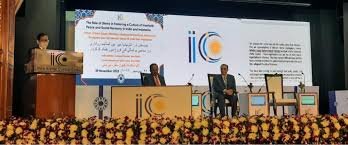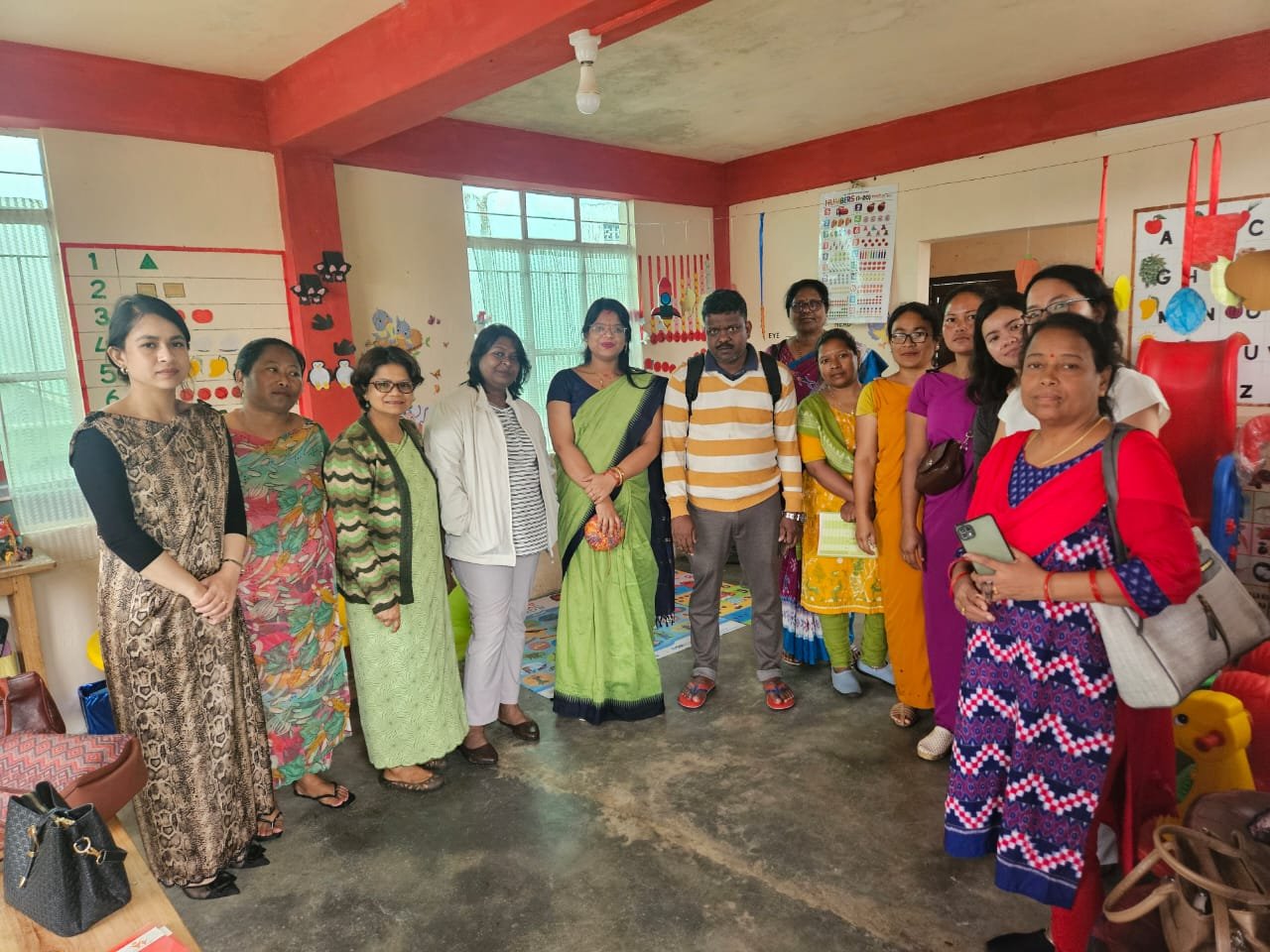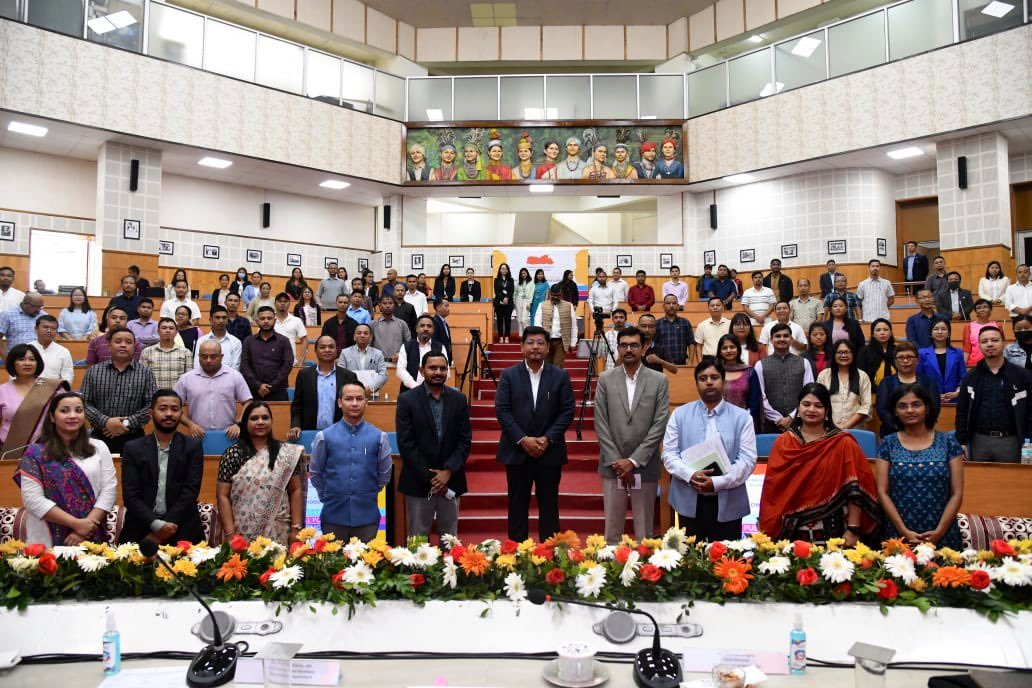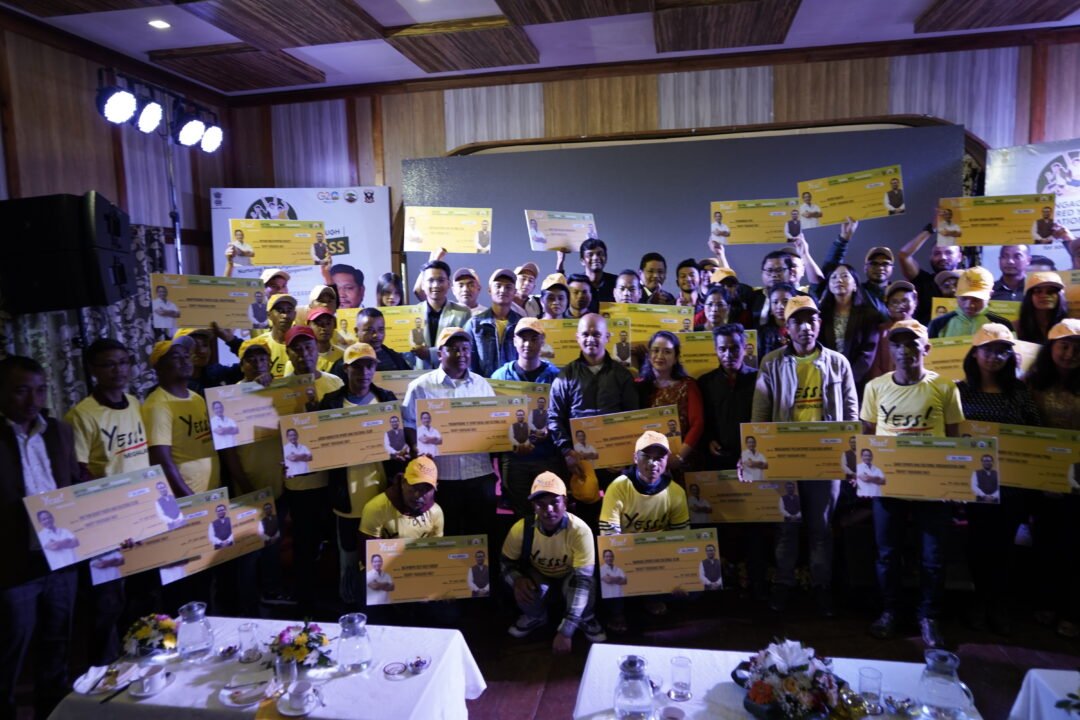: ‘Meghalaya is truly a children’s state’
HT Bureau
GUWAHATI, Sept 19: In a significant move to ensure that inclusivity becomes a key focus in the development of young children in Meghalaya, the state government launched a landmark partnership with the Ummeed Child Development Centre (CDC), a leading organization acknowledged as consultant to the WHO’s Nurturing Care Framework, on 19th September 2024.
The partnership under the Meghalaya Early Childhood Development (ECD) Mission was unveiled at a launch event in Shillong, attended by key stakeholders, including the Hon’ble chief minister Conrad K Sangma. The ECD Mission has made strides in improving health, nutrition, and gender equality for children in the state. This partnership with Ummeed CDC further focuses on inclusivity, a crucial aspect of early childhood development.
The collaboration introduced the Guide for Monitoring Child Development (GMCD), a proprietary tool licensed to be used and trained only by Ummeed CDC in India. The tool will be used to monitor, detect, and address developmental delays in children between the ages of 0 and 42 months.
Prior to his address, chief minister Sangma took centre stage to launch the tool and officially unveil the GMCD in the State. He noted, “The Meghalaya ECD Mission has always been about ensuring the overall well-being of our children, and we are proud of the progress we have made in areas like health and nutrition. But inclusivity is key to ensuring that every child can grow and thrive, no matter their background or challenges. This partnership with Ummeed CDC marks a new era in how we approach early childhood development in Meghalaya, and it is a critical step toward creating a more inclusive future for all children.”
He reflected on the inspiration behind Ummeed, sharing, “In 2016, during a visit to Australia, a professor told us that ‘the greatest strength of India is its youth, and maybe the greatest challenge is its youth.’ This insight has been a guiding force for us and is embedded in the core of Ummeed.” He also emphasized the broader impact of Ummeed, “Beyond early childhood, our vision includes fostering entrepreneurship and innovation. Through the CM Elevate program, we aim to support 20,000 entrepreneurs, driving our state’s economic growth and creating opportunities for our youth.”
During the event, Mr. Kumar emphasized the significance of this ambitious program, which sets out to address the developmental needs of every child in Meghalaya. “This is not just another program with limited targets,” he remarked.
“The goal is to ensure no child is left behind, and every child in the state is given the chance to thrive,” he added.
Describing the mission as a blend of both “science and love,” Mr Kumar pointed out that every parent’s natural care for their child can be harnessed with the right support, turning Meghalaya into a model state for child development.
With nearly 49% of the state’s population comprising children, he declared, “Meghalaya is truly a children’s state.”
He said the state’s proactive approach includes the establishment of Human Development Teams, which regularly visit vulnerable households, spending time with families to understand their challenges.
“One recent field visit identified a 12-year-old girl with intellectual challenges who had gone unmonitored since birth,” said Mr Kumar. “This highlights the critical need for our new Child Development Monitoring Guide, which will ensure that every child, particularly those between zero and 42 months, receives the attention they need.”
Dr Vibha Krishnamurthy, who has over 25 years of experience working with children with disabilities and their families and is also a Developmental Pediatrician and founder of Ummeed Child Development Centre, delivered a keynote speech during the launch.
She expressed her delight at being part of this groundbreaking initiative, stating, “This project is truly pioneering, not just in Meghalaya, but across South Asia and the Asia Pacific. I cannot tell you how honoured and delighted I am to be introducing you all to this work that we will soon be doing together. 23 years ago, when I first entered this field, I encountered the shocking statistic that 15% of children in low and middle-income countries have some form of disability—this amounts to 52 million children in India alone.”
She emphasized that early detection and intervention are essential for these children, especially during the critical first three years of brain development when synaptic connections in the brain form at an astonishing rate.
She concluded by highlighting how early childhood intervention could increase future earnings by up to 25% for children, ensuring long-term benefits for the state’s growth and development.












